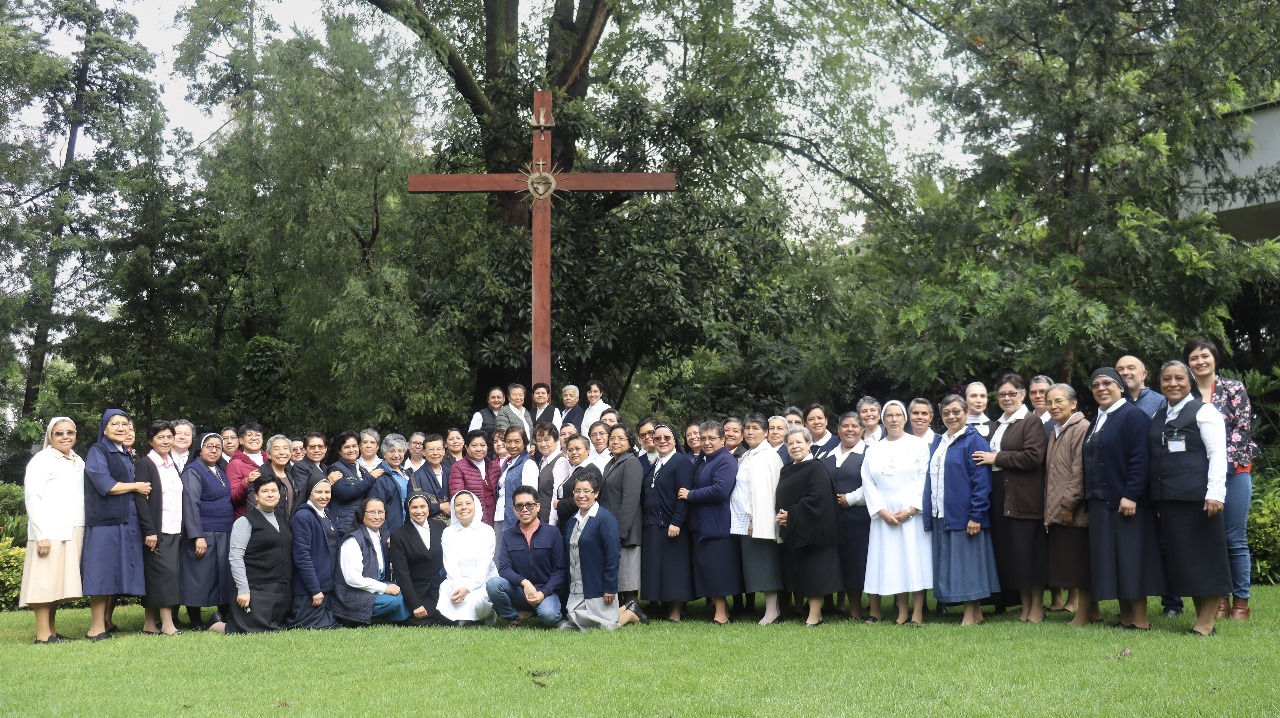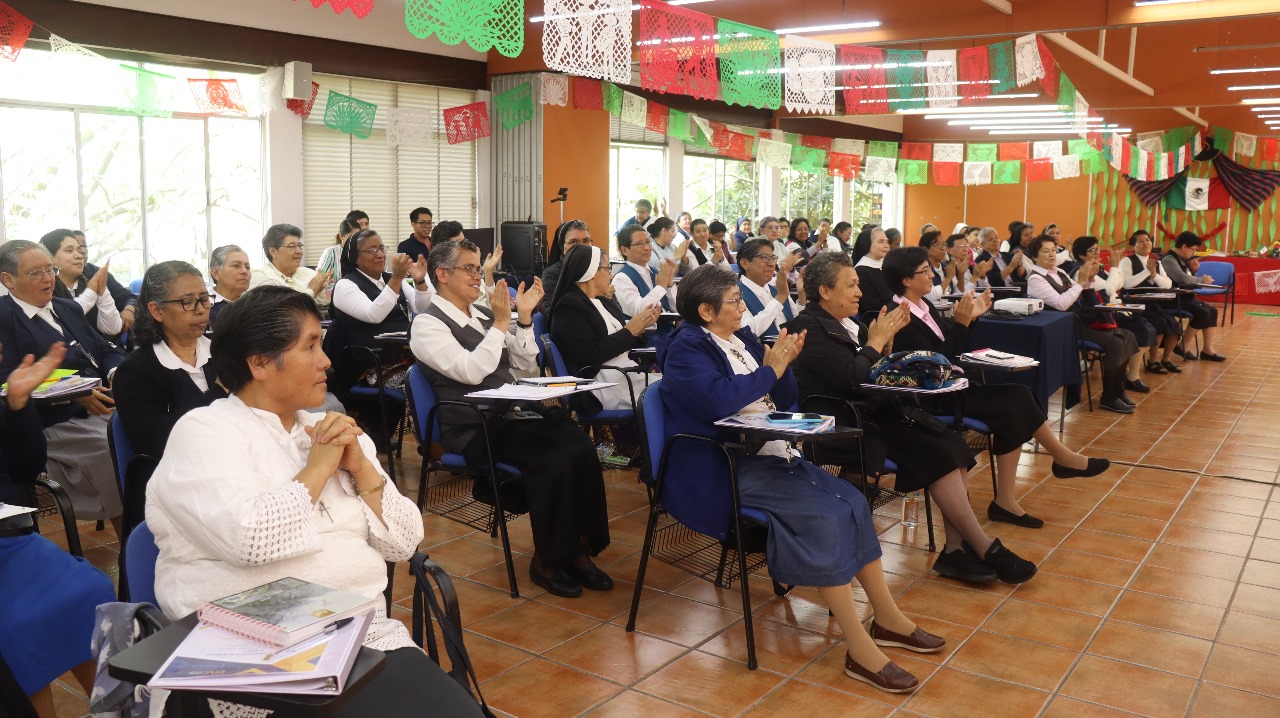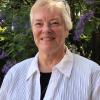
One challenge of the project of the Office for the Development and Integral Health of Women Religious in Mexico — which came about thanks to the initiative of the Hilton Foundation — will be to strengthen relationships between congregations in order to face together the aging of sisters and the health consequences that implies. (Courtesy of Office for the Development and Integral Health of Women Religious in Mexico)
Aging is not a topic that is openly discussed in religious congregations, despite the fact that the average age of religious in consecrated life in Mexico is 62 years, and a quarter of the congregations have members over the age of 50, according to data from the project of the Office for the Development and Integral Health of Women Religious in Mexico.
Religious women in Mexico are getting older and with that the challenges, such as providing geriatric equipment, psychological care and specialized personnel, are becoming increasingly more demanding.
In an interview for Global Sisters Report, Sr. Brenda Teresita Hernández Valdés (Daughters of Mary Immaculate of Guadalupe), Sr. Soraida Moreno Sahagón (Daughters of Mary Help of Christians, in pastoral ministry for 24 years) and Katia Marlizeth Luna Salinas (executive director of the project) explain how this concern for the health of older religious was born.
The project team, in which two sisters participate, aims to promote a culture of healthy aging, and is looking to create intercongregational networks in order to establish a health center to care for older infirm religious.
"Consecrated life, even in advanced ages, continues to provide light and hope," says Moreno at the main office of the project, in the facilities of the Conferencia de Superiores Mayores de Religiosos de México (CIRM), located in the Benito Juárez district of Mexico City.
Data obtained from the project's research indicates that there is no preventive health policy: Ninety-two percent of women religious go to the doctor when they already have symptoms of an illness, and 5 out of 10 congregations spend between 25% and 60% of their annual budget on medical care.
The physical space where a multidisciplinary team works — composed of a historian, two sociologists, a graduate in theology, and religious from different congregations — began its activities in January 2023, as well as its web page created from research in which two essential questions were posed: Why and from what do religious in Mexico get sick?
The project began thanks to the initiative of the Hilton Foundation. Hernández says the foundation received many requests for support from Mexico with a common theme: aging and the health consequences it implies.
From left: Sr. Brenda Teresita Hernández Valdés, member of the Daughters of Mary Immaculate of Guadalupe; Katia Marlizeth Luna Salinas, executive director; and Sr. Soraida Moreno Sahagón, Daughter of Mary Help of Christians and in pastoral ministry for 24 years (Courtesy of Office for the Development and Integral Health for Women Religious in Mexico)
With the support of CARA (Center for Applied Research in the Apostolate) — and assisted by Hilton — the team began to investigate the needs of Mexican religious. Thus, Jesuit Fr. Thomas Gaunt (director of CARA), contacted the Mexican sociologist and Missionary of the Holy Spirit Fr. Luis Fernando Falcó Pliego, coordinator of the project.
The current team had its origins in an initial group formed by Hernández, the historian Carlos Leyva, and Falcó Pliego. In 2023, the project had seven active members.
The creation of the website allows for direct contact with women religious, explains Luna Salinas. Based on the intervention of CARA and the Hilton Foundation, the team developed the following research related to the health of Mexican women religious:
- Mapping of female consecrated life in Mexico;
- The needs of elderly and infirm women religious;
- Illnesses of women religious in Mexico;
- Admissions and departures, aspirants, postulants and novices in 2023.
These studies provide revealing data, but they do not represent the total number of women religious in Mexico, as Moreno indicates. The data is constantly changing, she points out.
The research, in which 220 women's congregations participated — out of a total of 295 registered by CIRM — was compiled from the useful responses of 161 institutes.
The hypothesis was proven — the smaller the institute, fewer are the resources available to provide for healthy aging — as can be seen in the summary of results available on the website of the project from the Office for the Development and Integral Health of Women Religious in Mexico, which aspires to become a civil association in 2024.
'Consecrated life, even in advanced ages, continues to provide light and hope,' says Sr. Soraida Moreno Sahagón, member of the team for the project of the Office for the Development and Integral Health of Women Religious in Mexico.
Likewise, the data obtained indicates that, in 20 years, vocations could decrease by as much as 17%, which poses challenges indirectly related to aging, since there will be fewer young sisters available to assume the ministries that older sisters will leave due to advanced age or illness.
Moreno's words, however, reveal an inspiring and optimistic determination. "We are few, therefore the importance of strengthening ourselves to provide a response; not to do something, but in the sense of being that which we are called to transmit," she states.
"We do not need a multitude to ensure the permanence of the charism. At this stage, we are not interested in being 80, 90 or 100; we can be four or five, but conscious of the charismatic patrimony we have received," she adds.
The numbers, nevertheless, are significant: The average age of women religious in Mexico is 62 years old, and only one in 10 are younger than 35, which presents challenges that the project of the office is facing with various initiatives.
Our health, our mission
Through various projects, the Office for the Development and Integral Health of Women Religious in Mexico aims to address a situation for which there is no personnel, training, counseling, specialized material, nurses, nor support from ecclesiastical or social institutions. The problem is greater in congregations with fewer than 100 members.
Without access to the public health system, 'much of consecrated life is unprotected,' explains Sr. Brenda Teresita Hernández Valdés, member of the project team of the Office for the Development and Integral Health of Women Religious in Mexico.
The situation in the country indicates that by 2050 the number of older people will exceed the number of younger people. Today, Mexicans who reach the age of 60 have a life expectancy of 22 more years.
However, of these 22 years, the last five will be accompanied by some type of disability or impairment of vital functions, according to Hechos y desafíos para un envejecimiento saludable en México, a publication of the Instituto Nacional de Geriatría (National Institute of Geriatrics).
Hernández says that some religious have access to public health care, but a larger group does not, because they are not salaried.
"Much of consecrated life is unprotected," she says.
To address this situation, the office project has developed various palliative activities, including the material level, and in terms of technical, human and psychological training.
Luna Salinas talks about the small grants initiative, which is a grant of 80,000 pesos (approximately US$4,700) given to congregations through an application and analysis process. The congregations use the grant to cover medical care needs, some surgeries and equipment (hospital beds, wheelchairs, canes, walkers and prostheses).

The project of the Office for the Development and Integral Health of Women Religious in Mexico trained 430 people, including 40 laywomen, in the care of infirm elderly sisters. (Courtesy of the Office for the Development and Integral Health of Women Religious in Mexico)
However, these aids are not sufficient. "Many [homes] do not have adequate nor suitable space for the care of elderly sisters who require specialized assistance or who cannot care for themselves," Luna Salinas tells GSR.
The general report on the illnesses of women religious in Mexico 2023 indicates that, in congregations with fewer than 100 Sisters, the most frequent health problems are cardiovascular, mobility, gastrointestinal, diabetes-related and respiratory.
On the other hand, in congregations with more than 100 sisters, mobility issues are the most visible, followed by cardiovascular, gastrointestinal and vision problems. All data varies according to the age of the sisters.
In the case of surgeries, eye and oncological surgeries occupy the first places.
Another initiative of the office project, to deal with situations such as these, was a course provided for caregivers of infirm elderly sisters, in which 430 people participated, including 40 laypeople who, during 16 sessions, were trained by medical specialists in health issues related to the elderly.
Advertisement
"Many [houses] do not have the space ... for the care of elderly sisters who require specialized attention," says Katia Luna Salinas, project director for the Office for the Development and Integral Health of Religious in Mexico.
The team from the Office for the Development and Integral Health of the Religious in Mexico is planning to create an additional, more ambitious project: an intercongregational health center.
"It would be a nursing home for infirm elderly sisters. We are not thinking of building our own, but we want some congregation to offer some space to build this house and equip it. It is designed to care for sisters whose needs are greater than the congregation can absorb," explains Luna Salinas.
In addition to the infrastructure, the project contemplates — in order to strengthen its intangible side — permanent workshops on body awareness and movement, and basic psychological care.
Moreno believes that it is necessary to create a strong culture of aging, not only among older religious, but also for younger women. In this regard, Luna Salinas adds, "Old age is not improvised; it is prepared for."
Regarding the immediate future, Hernández envisions projects for 2024 that are needed to confront, in a more organized way, the realities revealed in the research. "In the future, I see an intercongregational and strategic relationship, because this is how we will extend our charisms," she says.
"Our office motto is: 'Our health, our mission. Without health you cannot have a mission.' For 2024, we want to continue weaving networks and generating hope," Moreno points out.






